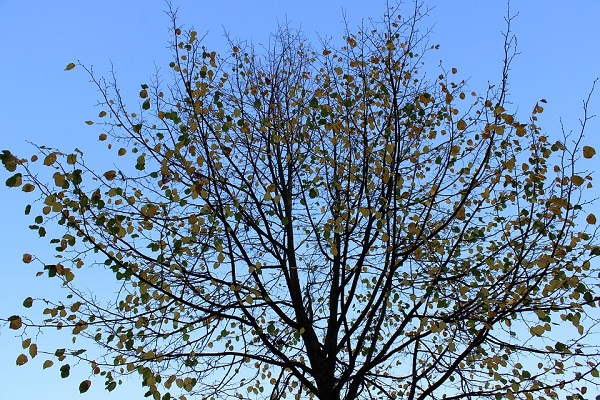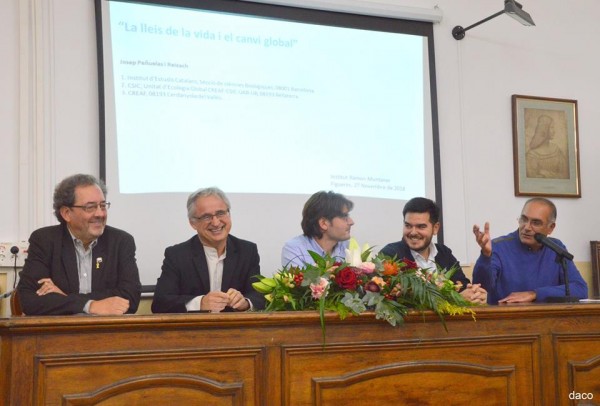
Plant phenology (collective term of the timing of plant flowering, leaf emergence, growth stages and senescence) is a sensitive indicator of climate change and plays an important role in regulating carbon uptake by plants. Previous studies based on both observations and model simulations, have found that air temperature has a positive influence on the onset of plant growth in the Northern Hemisphere; for example, higher spring temperature triggers earlier leaf-out and flowering dates and hence extends the growing season. These studies have focused on spring leaf-out by daytime temperature and the onset of snow-melt time, but the drivers controlling leaf senescence date (LSD) in autumn remain largely unknown.
In a new study in the journal Nature Climate Change authors used long-term ground phenological records (14,536 time series since the 1900s) and satellite greenness observations dating back to the 1980s. They showed that rising pre-season maximum daytime (Tday) and minimum night-time (Tnight) temperatures had contrasting effects on the timing of autumn LSD in the Northern Hemisphere (> 20° N).
If higher Tday leads to an earlier or later LSD, an increase in Tnight systematically drives LSD to occur oppositely. Contrasting impacts of daytime and night-time warming on drought stress may be the underlying mechanism. “Our LSD model considering these opposite effects improved autumn phenology modelling and predicted an overall earlier autumn LSD by the end of this century compared with traditional projections”, said Dr. Chaoyang Wu from the Key Laboratory of Land Surface Pattern and Simulation and the University of the Chinese Academy of Sciences, China.
“These results challenge the notion of prolonged growth under higher autumn temperatures, suggesting instead that leaf senescence in the Northern Hemisphere could begin earlier than currently expected, and may be a potentially unrecognized positive feedback to climate change and consequently a weakening in the capability of terrestrial carbon uptake”, said Prof. Josep Peñuelas from CREAF-CSIC Barcelona.
Reference: Wu, C, Wang, X., Wang, H., Ciais, P., Peñuelas, J., Myneni, R.B., Desai, A.R., Gough, C.M., Gonsamo, A., Black, A.T., Jassal, R.S., Ju, W., Yuan, W., Fu, Y., Shen, M., Li, S., Liu, R., Chen, J.M., Ge, Q. 2018. Contrasting responses of autumn-leaf senescence to daytime and night-time warming. Nature Climate Change 8, 1092-1096, doi: 10.1038/s41558-018-0346-z




